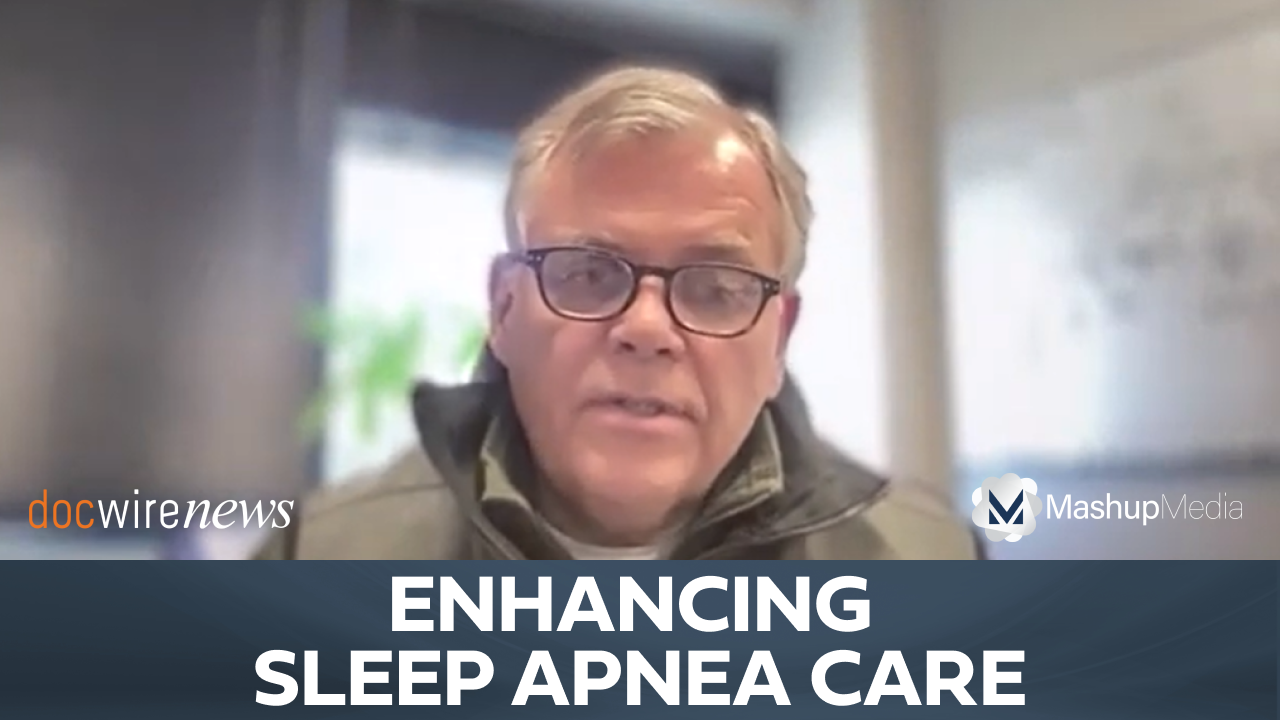Dr. Anne Marie Morse on the Connection Between Sleep, Heart Health
By Anne Marie Morse, DO, Rob Dillard - Last Updated: August 28, 2024Sleep quality has a profound impact on cardiovascular health, and a can result in elevated blood pressure, inflammation, and weight gain, which are all risk factors for heart disease and stroke. Dr. Anne Marie Morse comprehensively explains this often underestimated connection, specifically as it pertains to obstructive sleep apnea, and details resources which are available to individuals with sleep disorders to mitigate their risk of heart disease.
What is the connection between sleep and heart health?
So when thinking about sleep health and its impacts on cardiovascular health, this actually is probably one of the biggest areas of research that really has started to substantiate sleep’s relevance across other organ systems. One of the things that we’re thankful for is that organizations like the American Heart Association, has even stepped up their game from moving away from Life’s Simple 7 to Life’s Essential 8, by incorporating sleep into its cardiovascular, heart protective, things that you are fully in control, of that can help you protect your heart. Now with this stated, one of the things that’s very interesting is that many people have the misperception that the reason they incorporated sleep was for the factors of sleep disorder breathing, because obstructive sleep apnea has definitely stolen the stage in regards to the relevance as to how it can impact other areas of health.
Now, with that stated, I am not diminishing the impact that obstructive sleep apnea has. However, I’m highlighting the fact that sleep health is defined by more than just quality of sleep. It’s defined by the quality, the duration, the regularity, the timing, and in fact, Life’s Simple 7 became Life’s Essential 8 because of duration. Now, with that stated, this is something that was announced before January, 2024 where the regularity of sleep came out and said, “Hold my beer, duration, we are totally going to blow you out of the water,” because one review in the UK Biobank’s data, and seeing that we have over 10 million hours of accelerometry data to characterize different sleep-wake schedules, it had demonstrated that the regularity of sleep is far superior to what the duration is. In fact, demonstrating data that the more regular your sleep is can be cardiovascular protective in a manner of potentially anywhere between 25% to 50% risk reduction depending on a comparison of super regular sleep to the more regular sleep.
Now, this does not, again, throw the baby out with the bath water in regards to, “Don’t worry about duration.” It’s just a reminder of that all these factors are contributory. Now, if you’re wondering what kind of cardiovascular outcomes are we talking about, we’re talking about atrial fibrillation, we’re talking about hypertension, we’re talking about myocardial infarction or heart attacks. You name the heart dysfunction and you will find the data that demonstrates that sleep is not a comorbidity, it is part of that morbidity, but also the tool that you can utilize to be able to better protect your heart.
Specifically, how is obstructive sleep apnea (OSA) linked to cardiovascular disease (CVD) and stroke?
So what is fascinating is when looking at the diagnosis of obstructive sleep apnea, we are increasingly gaining knowledge on the fact that it affects so many organ systems, and I would go so far to say, every organ system. When talking about its relationship to heart health and cardiovascular protection, for many years we have been focusing on the hypoxia, the lack of oxygen, as being that primary driver. As a neurologist, I, of course, am extraordinarily biased against this theory because of the fact that it’s not the oxygen deprivation alone. In fact, we recognize that the sleep fragmentation is a really critical component. When we look at the sleep fragmentation, we understand, in having increasing knowledge around us, that that is going to drive that autonomic instability. You know? The things that control your heart rate, your blood pressure, that autonomic nervous system. If we are going to have autonomic dysfunction, we are going to see that we’re going to increase those risks from a cardiovascular perspective.
Now, with this stated, the kind of the web that we’re weaving with obstructive sleep apnea becomes even more complex because even without having abnormalities in AHI, meaning that you do not meet that degree of having at minimum five respiratory events an hour during sleep, we recognize even primary snoring may be a potential risk. We recognize that the reverberation from having that primary snoring can increase the atherosclerosis occurring in your carotid arteries, which obviously is going to do no favors for brain health. So with that stated, this is something that we’re further unpacking. I’ve been excited about recent literature that I’ve even been reviewing, in regards to how intermittent hypoxia can be negatively deleterious to your erection system and how your erection is actually being produced and utilized. This becomes important because we recognize that erection has, again, multidisciplinary across all organ systems impacts. Some of the things that I’ve been most excited about recently is exploring the relationship of erection with other neurohormones such as GLP-I, and things like CDRP, and recognizing that there are significant cardiovascular implications there.
So when we’re talking about what is the relevance of obstructive sleep apnea in relationship to heart risk and cerebrovascular risk, I think we really are talking about only the tip of the iceberg and that we’re going to continue to learn about so many more factors that are going to drive at this, because we recognize obstructive sleep apnea contributes to increased risk for diabetes, increased risk for obesity, increased risk for poor decision making. So maybe we may be more likely to smoke that cigarette or drink excessive alcohol. And so therefore, there are going to be these other indirect factors that are also increasing our likelihood to end up with those adverse cardiovascular outcomes that none of us want to deal with.
What resources are available for patients with OSA and sleep disorders to decrease their risk of CVD?
So if you’re an individual who is navigating life and you either have pre-existing cardiovascular conditions, or you’re concerned because maybe you do have obstructive sleep apnea or a sleep disorder and maybe there’s a family risk, there are multiple resources that are available to help get your hands around this. One of the things that I would say is check out sleepeducation.org. This is a resource put out by the American Academy of Sleep Medicine. There are also resources like the American Sleep Apnea Association, which is doubling down on sleep health and moving beyond just the focus of obstructive sleep apnea. Project Sleep is another resource that delivers the sleep hotline, which is nationally available in really trying to help individuals on their own medical journey and connecting them with the resources that are currently existing.
You can’t neglect other organizations like the American Heart Association who has evolved their Life’s Simple 7 to Life’s Essential 8, highlighting the critical importance of sleep as a cardiovascular protective resource that you can utilize as a tool in your daily life. At the end of the day, one of the things that I would say is the most valuable resource, you. You can start creating your own symptom experience, symptom diary to understand what it is that you are struggling with, and partner with your clinician who can help you to better understand what are the changes that may be useful to you to provide you not only a better night’s sleep, but your best days and optimal cardiovascular protection.







 © 2025 Mashup Media, LLC, a Formedics Property. All Rights Reserved.
© 2025 Mashup Media, LLC, a Formedics Property. All Rights Reserved.